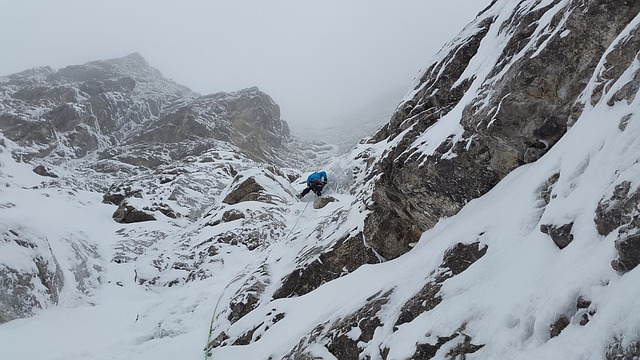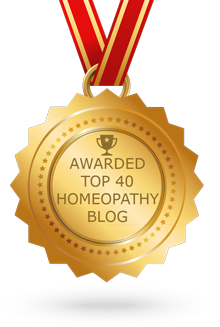In Australia, the figure is at around 800,000 who are thought to have post traumatic stress disorder at any given time. Up to ten percent of people are predicted to suffer from this issue at some stage of their lives. I’d like to suggest it’s a little higher than this, since most people with PTSD tend to suffer in silence, and I see this so often in my clinic. The world is actually full of these silent heroes. Day after day they get up, go to work, look after their children, socialise and navigate the potential minefields of their relationships. All the while, they are living with a constant, underlying commotion of tension, seething anxiety, sometimes terror and occasionally an outright storm of internal violence.
Why do PTSD people choose to suffer in silence? Why don’t they just reach out? I hear people say stuff like that in conversations about PTSD. They’re well meaning, I’m sure. Well, I can tell you from personal experience that in a world full of people talking about the perfect body, the highest income, the neatest cupboards and the latest movies, it just never seems to be a good time to mention the panic attack you had this morning, or the nightmare you woke up from in a pool of sweat the night before.
It’s really just a bit of a mood killer to explain why you had to leave the dinner party or concert in such a mad rush. Because even you might not have been able to identify what triggered that sudden and drastic urge to just get the hell outta there. Or why you never made it out that night at all.
It’s strange… You hurt your physical body and the injury is there; obvious for all to see. You limp round on a broken leg encased in a nice, big white cast, which everybody then respects because they can see that you need to treat it gently so it can heal. But there are other ways we can be injured and sometimes those are the most difficult of all to resolve.
When you go through emotional trauma, the injuries are invisible. People occasionally notice something isn’t quite right if you’re having a particularly bad day, or an overly fraught moment. But, to tell the honest truth it’s something I’d rather people not notice, since it feels ever so much like a weakness. As much as I try to logicalise myself out of seeing it like that, it really makes me feel inadequate when I compare myself to the women out there who organize trivia nights, work full time in corporate gigs, juggle multiple kids and somehow find the time to help out regularly at canteen.
Despite my modest achievements of overcoming my severe panic attacks and beating my crippling anxiety (for the most part anyway), there are still occasional days where I can’t organize myself out of a paper bag. Or I feel so tired from adrenal exhaustion after years of constant fight/flight that I’m proud of myself for getting through a couple of loads of washing and a relatively nutritious dinner for my family.
It’s not necessary to mention what put me into this state of affairs. My closest people know, as well as the wonderful therapists who have supported me throughout the years. What matters for this exercise is that, given the prevalence of PTSD in our society, what I see online is dry stats and general facts. There are many websites giving tips on how to deal with it, and who to see. All of that’s important; vital, if we are to have a hope of being able to support people suffering from this.
But not many people seem to want to talk about their personal experiences. Neither do I really, if truth be told. I fear that by writing about this it will stigmatise me, mark me out as somehow damaged beyond being “worth it.” However, what I would like to offer is almost an entire adult lifetime of learning what has worked for me to help me climb out of my black hole. Of course this will be different from person to person, which is why the general and informative websites are good too. But here, to you, I will open my soul.
PTSD: We wear our scars on the inside
We, of the ones who have been through trauma, wear our scars on the inside. When we limp through the day with our invisible wounds, we often feel judged for not measuring up alongside those who don’t have to climb a mountain just to achieve the basics of life.
By the time I get to work in the morning on the days I’m there, sometimes I feel like turning around and hiding in my bed with a good book and a block of chocolate because I just don’t feel like I can face reality today. That might sound like a bit of a cop-out, like I’m not in the mood or can’t be bothered. I have plenty of those moments too, which I normally push myself through like anyone else does.
What I’m talking about are the moments when there is a wall of despair before me, that rivals the ice wall out of Game of Thrones. You know the one; at over seven hundred feet tall, which when I watched the characters climb it with ice picks and ropes in the howling wind and snow, I had to fast forward that bit because it reminded me so much of what I have to climb on the inside some mornings before I can ready myself to be professional.

Those who don’t suffer from PTSD are probably right now guffawing and calling me a drama queen. You wouldn’t be the first. To get a picture of what it has felt like for me in my inner world, for those who are wondering; imagine your inner feeling world as a house. Now, imagine someone breaking into that house and taking your valuables, like the super special necklace from your great grandmother, or the ring your best friend gave you before passing away from cancer. (The next bit is a little disturbing, just to warn you.)
Then, imagine that intruder taking a dump in your bed, throwing around your beloved photo albums, punching holes in the walls, slashing your carpet and throwing the contents of your fridge and pantry all over the place. Oh, and you’re watching while it happens and there’s not a damn thing you can do about it. And, you never know if that intruder is going to harm you or even kill you, because you have no power or control in this scenario. This is similar to what it feels like on the inside to have gone through a traumatic experience.
If you’re a child when this happens, and if nobody is around who understands well enough to adequately help afterwards in any useful way, imagine having to live in amongst the festering carnage until you can get big enough to begin the job of clearing it all up (if you are even capable of it by then). Unfortunately, it’s all too common to hear about people suiciding or drinking themselves to death instead because it’s too overwhelming for some, even once they reach adulthood.
Imagine, furthermore, that because you’re highly distressed at the state of your inner world that you’re stuck in and can never leave, you tend to act out in various unsavoury ways… because you just can’t help it. Then you find yourself getting constant negative feedback from the people around you, for not being a nice person. Often once it gets this far, you may start avoiding company because everything’s just too hard… It’s a no-win situation, and to add insult to injury, the events which cause these traumas are out of our control and not something we would ever have chosen, or even wished upon our worst enemy.
It’s little wonder why there’s the natural tendency to disassociate with our feelings and just go numb. It’s easier to go numb, as unpleasant as it is, than struggle with the enormity of feeling like that. But things leak through, as much as we push them away, and it’s exhausting spending the energy on suppressing or escaping those feelings.
The acute form of PTSD can spin into further traumatising events
What’s even worse, if the acute form of PTSD is not dealt with in a timely manner, it can set up an out-of-control spin of further traumatising events that somehow come your way no matter how much you try to stop them from happening. Being bullied, finding oneself in abusive situations and substance abuse tend to be scarily more common in people with chronic, unresolved PTSD.
Panic attacks, nightmares and extreme anxiety were the daily norm for me for many years. Extreme bouts of rage, and terror that I might lose control of myself were common. I felt alienated; lonely no matter how many people I was surrounded with. It was rare for me to ever feel any kind of connection to anybody else. I walked around in a grey cloud, every day feeling like it was worse than the last, being bounced like I was in a pin-ball machine from one disaster to another.
Before I completely depress my dear readers beyond despair, I’d like to change perspective and tell you about now. These days, I occasionally still feel horrible. It’s sometimes hard to sleep, although for the most part I sleep like a log. But the despair, the grey cloud and extremes of anger have mostly resolved, aside from my lack of patience for bad drivers or long queues.
Occasionally I feel anxious, probably more than the average person and sometimes quite extreme. But it’s usually now at an intensity of four or five out of ten rather than eleven out of ten as it used to be. I eat a very clean diet, as sugar and alcohol make me feel horrible. I also avoid toxic and shallow people as much as possible and I treat myself with respect whenever I remember. This has come with many years of practice, and making thousands of mistakes along the way.
The clinic I work at specializes in the support of children’s behavioural and health issues. In the course of my day I see many children (and parents) who have stories of previous trauma. Often they are the ones who go on to be bullied at school, struggle with making friends and flail around with their academic performance, along with a number of other emotional and physical health issues as well. Their parents will often mention they refuse to go to school, have night terrors or lash out at their siblings. As a parent it can be a real trauma in itself to deal with these kids, day after day after day.
Homeopathy and PTSD
The most effective modality I’ve seen so far in helping these kids (and occasionally their parents, although it’s much more complicated with chronic trauma in older people), is homeopathy. This is, actually, the reason why I became a homeopath because over the years I myself have been able to find huge relief from my symptoms through this amazing health modality.
Homeopathy works on a whole person level. It perceives the immune system as existing not just in the physical body, but also on the emotional and mental levels as well. It acknowledges the fact that the way we feel and think affects our bodies in significant ways. It addresses causations and how they can bring about a “never well since” situation. Best of all, homeopathy also allows for conscious self-exploration and greater understanding of the subconscious, which is the area where these distressing feelings get stored.
Homeopathic remedies that are used to help support and clear these symptoms are ones that “barefoot” homeopaths should not be wielding in cases of PTSD. People who are attempting to heal from trauma can be incredibly vulnerable and their issues are often very complex. It is vital to see a therapist who is knowledgeable and skilled in this area.
Other modalities I have found incredibly powerful for PTSD include:
- Kinesiology, which works fantastically on the subconscious level
- Hypnotherapy, for the same reasons
- Reflexology
- Craniosacral therapy, massage, other body work and chiropractic
- Bach flowers
- Counselling
I won’t go into all of them as you can click on the links to find out more. But I will have my say about counselling, having been to quite a few therapists over the years who specialize in this area. Counselling is a valid and often useful modality when it comes to dealing with trauma, especially if there’s also gestalt therapy or some other useful array of tools on offer that help to reduce the impact of the barrage of destructive feelings, thoughts and body responses that come with PTSD. It’s also useful to be able to gain an understanding of our situation, as well as to reframe our experiences from a more positive point of view.
While it can be such a relief to talk about our symptoms and get things clear in our understanding, if we talk too much about them they become our story. We can become caught in a broken-record-rut, and then the effects of the trauma can become stuck as an integral part of our identity, instead of being seen as a layer that can gradually be shifted with a whole lot of support and the right combination of treatments. This is why, while I have a positive regard for counselling, it’s possible to become lost in the maze of our intellectual mind rather than dealing with the big stuff below the surface which can be accessed by many of the modalities above.
I also acknowledge that in the case of severe trauma, there may be a need for conventional medication to support extreme symptoms until the person can find a more stable state of being in order to cope with the trials of healing. This is far from my professional area of expertise and best left for those at the coal face of conventional mental health. Often in dire circumstances, a best-care outcome is one where a person has the support of both conventional and complementary and alternative medicine if the resources are available for it.
Here are some other things that I have found helpful
Shielding
Often after a traumatic experience, it feels like some kind of invisible protection has been breached. Shielding helps in the same way that putting a band-aid over a weeping sore can assist in protecting the skin while it heals. Visualise your favourite colour, avoiding the blacks, greys, browns and reds. Try gold, silver, white, purple, blue or green. Then, imagine yourself inside a bubble of that colour. It’s important to visualize the outer skin of the bubble as being whole, strong and unbreakable. Every morning I try to remember to put up my shield, especially if I’m going into a situation that may be challenging for me. Often I have to renew my shield throughout the day, or strengthen a particular part of it if there’s someone close to me who is either upset, angry or acting in a way I find threatening. There’s no point me going down like a tonne of bricks along with that person, and putting up a shield allows me to be able to respond better to the situation without being as affected.
Meditation
Alongside the above modalities, meditation is up there as being just as, if not more powerful than therapy for PTSD. It’s important to find the right style for you, and there are now many apps you can install on your phone if you’re just starting out and need some guided meditations. You may find some other useful links here . Meditation, if done right, involves listening to yourself on the inside and sensing your way to something higher than the tangle of thoughts and emotions. Focusing on the heart is a great way to move the attention away from the chaos and centre yourself. Doc Childre’s book, Heart Math, may be a helpful guide. Which leads into my next point:
Watch your self-talk
Often those who have been in traumatic situations have self-talk that sounds more like a frenzied shout than a quiet whisper. It pays to be aware of your thoughts and feelings as much as you can, which often begins to happen after a while when you meditate effectively. When you’re yelling at yourself, to start with, it’s enough to acknowledge the fact that you’re yelling at yourself. Eventually you’ll find yourself yelling less, if you gently catch yourself out enough times. Whatever you do, don’t yell at yourself because you’re yelling at yourself. You may not be able to change the negative thoughts towards yourself straight away, but the more you catch and observe yourself, the less you’ll do it.
Save your energy – don’t bother running from your feelings
Take it from one who has tried almost every available escape route possible from distressing thoughts and PTSD feelings… The more you run from them, the more they chase you; just like the old school bully. The minute you make the intention to turn and face the source of that distress; to make sense of it in the best way possible, will be the minute you begin the process to stop fighting against yourself. It won’t all happen at once, don’t worry. In fact, it’s vital it doesn’t all happen at once. Distressing feelings raise their ugly heads in little bits and pieces over time. This is for a very good reason. The original traumatic event (or series of events for those with complex-PTSD) was too much for us to handle. That’s why we went numb, disassociated or pushed it all away in the first place. Don’t expect yourself to be able to deal with all that in one go.
Take small bites of this thing, and then put limits on what you can expect yourself to handle at any given time. Chip away at it and allow yourself all the time you need. In most cases, these things take years, lots of different angles and modalities, and a load of support. And when you’re dealing with horrible things, know it’s not going to last forever, even if you feel like it will. Things really do pass and change. In fact, change is the only thing any of us can 100% rely on.
Have a range of constructive escapes on hand if it gets too much
Now I’m going to contradict myself completely here and say it’s important to sometimes escape. Rather than alcohol and recreational drugs, which don’t help (they really do just make things worse) get a list together of things you can escape into which won’t hurt you. Try channel that energy into something less harmful.
Reading novels, swimming, walking, writing, listening to music and gardening are some ideas that may help to allow some space to get away from repetitive thoughts or persistent crappy feelings. Get a list of your own together so that when the proverbial sticky stuff hits the fan, you have a pile of good movies, an addictive novel or something that can distract you until you feel more up to dealing with it all. We all need a break now and then. Go easy on yourself and don’t force things.

Reach out. You’re not alone
Really! You’re not alone. You may feel like the only person on the face of the earth at times, when things are tough. But you’re really not alone. There are so, so many people who look like they have it all together on the outside, but don’t. No matter how screwed up you feel you are, to isolate yourself away from the world is not going to help you get through this. You’re going to have to start trusting someone.
Not everybody, though. Just a select few, who you feel will treat you with respect and give you some of the support you need. Make sure you choose these people wisely, and recognize that everybody has limitations. Nobody’s perfect, and all that. But no matter how not-perfect they are, people with whom you don’t have to make small-talk can be very helpful to have around when things are tough. They’re also great to have around when things are good too!
Sometimes they’re hard to find at first, but they’re there. Keep looking and you will find them, especially if one of your escapist pursuits is a hobby or passion you enjoy. Then you’re more likely to meet like- minded people who might have more chance of understanding and appreciating you for who you truly are.
Some thoughts on suicide
If you’re having thoughts about suicide, please please please keep reminding yourself that these horrible feelings don’t last forever. Reach out. Call someone. Get yourself to someone who can help you. You may need to go through a few different therapists before you find the right one, but they do exist. Don’t give up. There are people out there who may not be able to provide you with miracles, but they can help support you while you carry your burdens.
Contrary to what you may think, there are many others with PTSD who share similar thoughts, feelings and experiences. You don’t have to feel trapped any more, and you do have power over your current situation, no matter how much you feel that you don’t. The small (or even big) choices we make every minute of every day may seem insignificant, but at the end of the day it’s the accumulation of these many choices that has such a powerful effect on the total course of our lives. Ask yourself, is this choice I’m making leading me to something better? It can be overwhelming at first to begin making choices that bring change into our lives, but isn’t that preferable to staying stuck in the same old rut? I don’t regret for a second my many choices to live a better life, no matter how hard the journey has been at times and no matter how terrified I was to make those changes. You too can start taking those steps towards living, rather than just existing. The choices are only waiting for you to take them!
- The importance of Muscle Mass in menopause - 12/03/2025
- Penny’s gluten free bread recipe - 14/10/2024
- Children and bedwetting: What can parents do to help? - 01/10/2024




Leave a Reply